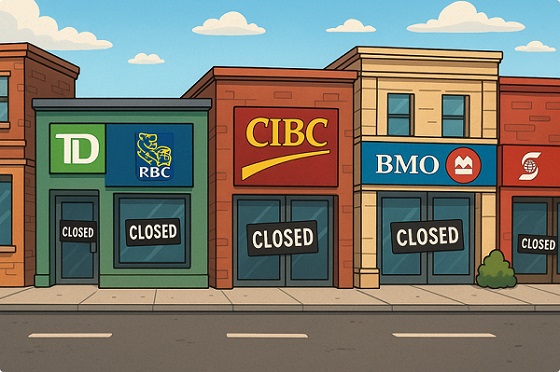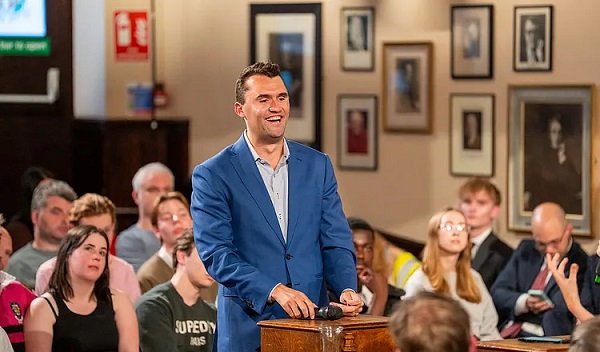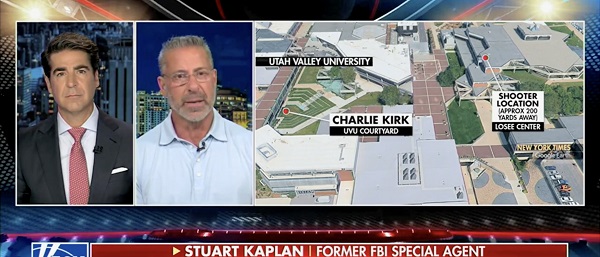Frontier Centre for Public Policy
Every Child Matters, Except When It Comes To Proof In Kamloops

From the Frontier Centre for Public Policy
If murdered women justify landfill digs in Winnipeg, why hasn’t Kamloops lifted a shovel for its alleged 215 child graves—despite $12 million and four years of national mourning?
Winnipeg searched a landfill to honour Indigenous women, but Kamloops has yet to dig a few feet for its missing children
If Canadians are serious that every child matters, we should at least know the names of the “missing” Indian Residential Schools children about whom we hear almost daily in mainstream media reports.
There are frequent reports of news conferences staged by Indigenous band leaders proclaiming new ground-penetrating radar (GPR) “discoveries” of unmarked graves at former residential schools. GPR detects soil disturbances, but it cannot confirm whether they are human remains or even graves. The reality is that the small number of excavations which have occurred have yielded no human remains, despite stories of clandestine burials told by Indigenous knowledge keepers.
By contrast, in Winnipeg, excavations have been happening at landfills to search for the bodies of Indigenous women murdered by a serial killer. Yet after more than four years of gut-wrenching stories about the apple orchard at the former Kamloops Indian Residential School, not a single excavation has been carried out to confirm the alleged burial of more than 200 children.
On May 27, 2021, the Tk’emlúps te Secwépemc First Nation announced that radar had revealed anomalies consistent with possible graves near the former school. Following that announcement, many First Nations made similar claims based on GPR. Yet no band, including Kamloops, has identified a single missing child by name. Kamloops alone has received $12 million in federal funding for excavation work, but no digging has taken place, and no explanation has been given for the delay.
Are we serious? If murdered Indigenous women in Winnipeg matter enough to prompt landfill searches, why don’t the children allegedly buried at Kamloops matter enough for an excavation?
Sometimes it seems Canadians are far too willing to look away, even at the risk of being disingenuous. The Heather Stefanson government in Manitoba was defeated in the 2023 election, famously because it refused to search landfills for murdered Indigenous women. Yet the Kamloops allegation—one of the gravest ever levelled in Canadian history, involving the alleged murder and burial of more than 200 children—remains untested.
In the meantime, copycat “discoveries” have spread across the country, the media has fanned a moral panic at home and abroad, orange T-shirts have become a fixture, and schoolchildren are taught that allegations of murder, rape, mayhem and mass graves are fact. Orange Shirt Day and the phrase “Every Child Matters” became national symbols of reconciliation after the Kamloops announcement, further entrenching the narrative.
In Manitoba, Morgan Harris and Marcedes Myran, two Indigenous women murdered in Winnipeg, mattered. Their families and communities mattered. If First Nations in B.C. and elsewhere—and indeed all Canadians—truly believe every child matters, and if many still believe there are children buried at Kamloops, why are Canadians kept in the dark? Indigenous families in particular are being told, and teaching their children, that genocide explains the inequality—social, economic and otherwise—they endure today.
It’s tempting to blame governments for fuelling the panic or the mainstream media for refusing to ask basic questions. Yes, they bear responsibility. But the spark came from Kamloops, and only Kamloops can settle this. Its own GPR specialist recommended excavation. That would prove whether bodies exist, identify who the children were, and reconnect them to their families and communities.
Instead, Canadians are asked to accept the story on faith. After four years with no excavation and no names, credibility is stretched to the breaking point.
Consider the contrast: Manitoba Premier Wab Kinew says $18 million was spent to dig through thousands of tonnes of hazardous landfill to recover the remains of Morgan and Marcedes. Kamloops, with $12 million to dig just a few feet, has yet to act.
Something is wrong with this picture. Either compassion for Indigenous children is missing, or the “missing” children aren’t missing at all.
Where is that compassion Canadians love to think they possess?
Or is it simply not true that every child matters?
James C. McCrae is a former attorney general of Manitoba and Canadian citizenship judge.
Banks
Debanking Is Real, And It’s Coming For You

From the Frontier Centre for Public Policy
Marco Navarro-Genie warns that debanking is turning into Ottawa’s weapon of choice to silence dissent, and only the provinces can step in to protect Canadians.
Disagree with the establishment and you risk losing your bank account
What looked like a narrow, post-convoy overreach has morphed into something much broader—and far more disturbing. Debanking isn’t a policy misfire. It’s turning into a systemic method of silencing dissent—not just in Canada, but across the Western world.
Across Canada, the U.S. and the U.K., people are being cut off from basic financial services not because they’ve broken any laws, but because they hold views or support causes the establishment disfavors. When I contacted Eva Chipiuk after RBC quietly shut down her account, she confirmed what others had only whispered: this is happening to a lot of people.
This abusive form of financial blacklisting is deep, deliberate and dangerous. In the U.K., Nigel Farage, leader of Reform UK and no stranger to controversy, was debanked under the fig leaf of financial justification. Internal memos later revealed the real reason: he was deemed a reputational risk. Cue the backlash, and by 2025, the bank was forced into a settlement complete with an apology and compensation. But the message had already been sent.
That message didn’t stay confined to Britain. And let’s not pretend it’s just private institutions playing favourites. Even in Alberta—where one might hope for a little more institutional backbone—Tamara Lich was denied an appointment to open an account at ATB Financial. That’s Alberta’s own Crown bank. If you think provincial ownership protects citizens from political interference, think again.
Fortunately, not every institution has lost its nerve. Bow Valley Credit Union, a smaller but principled operation, has taken a clear stance: it won’t debank Albertans over their political views or affiliations. In an era of bureaucratic cowardice, Bow Valley is acting like a credit union should: protective of its members and refreshingly unapologetic about it.
South of the border, things are shifting. On Aug. 7, 2025, U.S. President Donald Trump signed an executive order titled “Guaranteeing Fair Banking for All Americans.” The order prohibits financial institutions from denying service based on political affiliation, religion or other lawful activity. It also instructs U.S. regulators to scrap the squishy concept of “reputational risk”—the bureaucratic smoke screen used to justify debanking—and mandates a review of past decisions. Cases involving ideological bias must now be referred to the Department of Justice.
This isn’t just paperwork. It’s a blunt declaration: access to banking is a civil right. From now on, in the U.S., politically motivated debanking comes with consequences.
Of course, it’s not perfect. Critics were quick to notice that the order conveniently omits platforms like PayPal and other payment processors—companies that have been quietly normalizing debanking for over a decade. These are the folks who love vague “acceptable use” policies and ideological red lines that shift with the political winds. Their absence from the order raises more than a few eyebrows.
And the same goes for another set of financial gatekeepers hiding in plain sight. Credit card networks like Visa, American Express and Mastercard have become powerful, unaccountable referees, denying service to individuals and organizations labelled “controversial” for reasons that often boil down to politics.
If these players aren’t explicitly reined in, banks might play by the new rules while the rest of the financial ecosystem keeps enforcing ideological conformity by other means.
If access to money is a civil right, then that right must be protected across the entire payments system—not just at your local branch.
While the U.S. is attempting to shield its citizens from ideological discrimination, there is a noticeable silence in Canada. Not a word of concern from the government benches—or the opposition. The political class is united, apparently, in its indifference.
If Ottawa won’t act, provinces must. That makes things especially urgent for Alberta and Saskatchewan. These are the provinces where dissent from Ottawa’s policies is most common—and where citizens are most likely to face politically motivated financial retaliation.
But they’re not powerless. Both provinces boast robust credit union systems. Alberta even owns ATB Financial, a Crown bank originally created to protect Albertans from central Canadian interference. But ownership without political will is just branding.
If Alberta and Saskatchewan are serious about defending civil liberties, they should act now. They can legislate protections that prohibit financial blacklisting based on political affiliation or lawful advocacy. They can require due process before any account is frozen. They can strip “reputational risk” from the rulebooks and make it clear to Ottawa: using banks to punish dissenters won’t fly here.
Because once governments—or corporations doing their bidding—can cut off your access to money for holding the wrong opinion, democracy isn’t just threatened.
It’s already broken.
Marco Navarro-Genie is vice-president of research at the Frontier Centre for Public Policy and co-author, with Barry Cooper, of Canada’s COVID: The Story of a Pandemic Moral Panic (2023).
Business
Manitoba Must Act Now To Develop Its Northern Ports

From the Frontier Centre for Public Policy
With U.S. trade risks rising, Manitoba has a fleeting shot to turn Churchill into a year-round Arctic shipping hub. Without bold investment, the North’s economic and strategic promise will slip away.
The window to turn Manitoba’s northern coast into a year-round shipping hub is closing fast
Rising trade tensions with the United States have given Manitoba a rare second chance to develop its northern ports. But if the province doesn’t act decisively, it will miss a historic opportunity to gain a permanent place in global trade—and reinforce Canadian sovereignty.
Manitoba exports billions in agricultural, mineral and manufactured goods to the U.S., so any disruption in that relationship has ripple effects across the province’s economy. Diversifying trade routes isn’t just smart policy: it’s an economic necessity.
Churchill, a small town on the western shore of Hudson Bay in northern Manitoba, is Canada’s only deepwater port connected to the Arctic. Churchill requires regular dredging in an ecologically sensitive area at the mouth of the Churchill River. While most attention has focused on Churchill, its potential will remain limited without serious investment to make it a year-round operation. Right now, it’s only usable during the summer months.
Premier Wab Kinew recently highlighted Churchill as a strategic asset for asserting Canada’s northern sovereignty. That may be true, but symbolic importance alone won’t sustain it. Economic value and operational reliability will. The port’s rail accessibility gives it an advantage if it can handle the volume and meet international trade demands year-round. However, the railway to Churchill is challenged because of unstable permafrost, affecting long-term reliability.
Feiyue Wang, a University of Manitoba professor and Canada Research Chair, sees Churchill as a potential game-changer. As climate predictions see a reduction in sea ice in the Canadian Arctic, shipping lanes that were once blocked for most of the year could become viable trade routes. That’s already happening.
The Arctic Gateway Group has shipped zinc concentrate through Churchill. Alberta Premier Danielle Smith and others have promoted sending oil through it. These aren’t just theoretical opportunities: they’re early evidence of what’s possible. But for Churchill to become a true supply chain hub, it needs infrastructure, investment and long-term political commitment.
Governments have already put money into the port and its rail link. But they must finish the job. That means building the capacity for four-season shipping, attracting private investment, and showing that the port will be viable over time. Manitoba should also press Ottawa to maintain a military presence in the region and use the port to reinforce northern sovereignty.
But if Manitoba is serious about developing northern trade infrastructure, it should also consider a second, ambitious alternative.
The Neestanan utility corridor, an Indigenous-led initiative, proposes a new infrastructure route—rail, roads and energy pipelines—across northern Alberta, Saskatchewan and Manitoba. The corridor would terminate at a year-round, multi-modal port on Hudson Bay, north of the Nelson River. Led by First Nations and Métis communities, Neestanan offers a broader vision for economic reconciliation and northern opportunity. Port Nelson is a deeper water port and its railway line is not in a permafrost zone, making it more feasible for year-round operations.
A century ago, Prime Minister Wilfrid Laurier’s government debated whether Churchill or Port Nelson should serve as the main northern terminal. Ottawa initially backed Port Nelson but later abandoned it due to silt accumulation. Churchill became the chosen site.
Today, both locations deserve a fresh look. With modern engineering, sediment shifts and Indigenous-led proposals, what wasn’t feasible in 1910 may now be not only possible, but necessary.
Churchill was originally built to ship Prairie grain to global markets. But its future lies in more than grain. With the right investment, it could handle a much wider range of goods and help secure Canada’s place in the evolving Arctic economy.
In short, the opportunity lies in developing both ports based on their practical and feasible characteristics, aiming to attract private investment.
This is Manitoba’s moment. But the window of opportunity won’t stay open forever. Other jurisdictions are moving faster. Manitoba must act swiftly—before the opportunity is lost.
This is a revised version of an earlier commentary published here
-

 Crime2 days ago
Crime2 days agoConservative speaker and celebrity Charlie Kirk shot during Q & A event at Utah Valley University
-

 Crime2 days ago
Crime2 days agoCharlie Kirk ASSASSINATED
-

 Opinion2 days ago
Opinion2 days agoThe Charlie Kirk I Knew
-

 Alberta1 day ago
Alberta1 day agoAlberta deserves a police force that actually reflects its values
-

 COVID-192 days ago
COVID-192 days agoCanada’s COVID mandates linked to rise in ‘unexplained deaths’: new report
-

 Crime1 day ago
Crime1 day agoCharlie Kirk Killer’s Ammo Reportedly Marked With Transgender, Anti-‘Fascist’ Messages
-

 Alberta1 day ago
Alberta1 day agoOPEC+ chooses market share over stability, and Canada will pay
-

 Crime1 day ago
Crime1 day agoFormer FBI Agent Says Charlie Kirk Assassination May Have Been ‘A Professional Hit’







